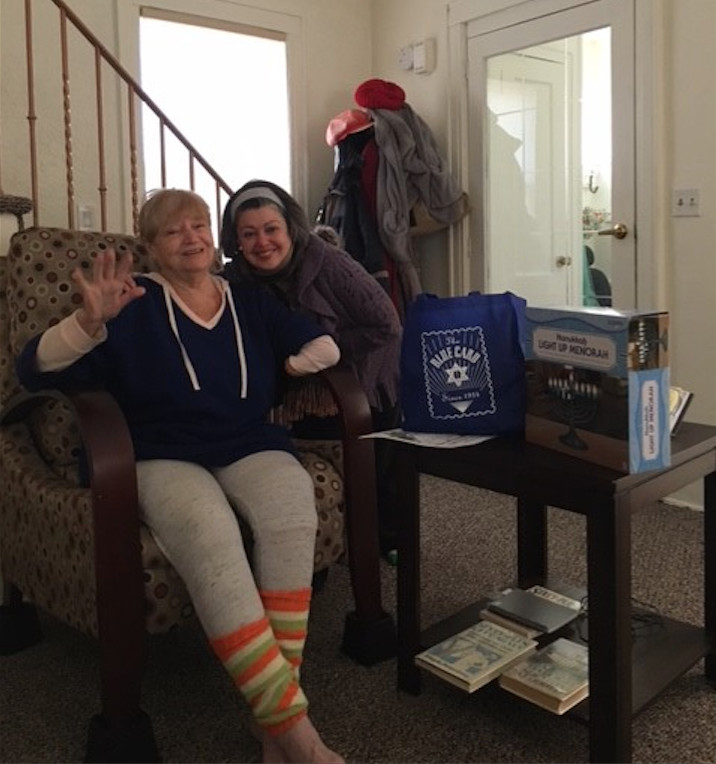Paying tribute to International Holocaust Remembrance Day
The world recognized International Holocaust Remembrance Day on Jan. 27 — a day designated by the United Nations to commemorate the victims of the Holocaust and the anniversary of the liberation of Auschwitz-Birkenau.
The day is remembered by the Blue Card, a nonprofit organization dedicated to providing direct aid to Holocaust survivors in the United States. According to the group, survivors’ requests for assistance grew 20 percent in 2016 from the prior year.
In light of International Holocaust Remembrance Day, the Blue Card called on the community to lend support to its “time-limited mission” to help improve the quality of life for the struggling survivors living in the United States.
About one-third of the 100,000 Holocaust survivors living in the United States live at or below the poverty line, according to the Blue Card. It’s estimated that 61 percent of the survivors living at the poverty line live on less than $23,000 per year, making it difficult to afford proper medical care, mental health care, nutrition and other basic needs. The Blue Card helps more than 2,500 Holocaust survivor households throughout the United States each year.
Long Beach resident Magda Rosenberg is among those survivors. Although she has two loving sons who are present in her life and take care of her, most other Holocaust survivors are not as fortunate. She received a Hanukkah care package from the Blue Card on Dec. 20. Senior Program Director Izabella Safiyeva and volunteer Larissa Finik visited Rosenberg’s home and kept her company after presenting her with an electric menorah, a thermos, hot cocoa mix and a personally knitted scarf.
“She was full of life, very positive, had a great sense of humor and she focused on her accomplishments,” Finik said about Rosenberg.
The care packages containing holiday and winter items were aimed to help elderly Holocaust survivors enjoy their Hanukkah celebrations. The packages were delivered in person this past holiday season by Blue Card volunteers in Manhattan, Brooklyn, Queens, the Bronx and Long Island.
“The Blue Card is a godsend for all of the Holocaust survivors,” Rosenberg said. “I want the Holocaust survivors out there to know, hey, you have a friend in the Blue Card.”
In a survey, the Blue Card found that the greatest needs for assistance lied in the categories of healthcare, food and utilities. Following those were supplies for Jewish holidays, dental care, medication, housing expenses, transportation, medical supplies and telephone emergency response systems.
“On this day of remembrance, the Blue Card wishes to honor the memories of those we lost by also commemorating those survivors still with us who are struggling to live their remaining years in dignity,” Masha Pearl said, Executive Director of the Blue Card.
“There is so much more we all need to do to ensure that Holocaust survivors who are in their 70s through 100s do not have to worry whether they can pay for basic needs such as food, rent or utilities. The time to help is now.”
“It’s not so much the things that are in the bags, but I think the human contact is something that they need,” Larissa Finik, Blue Card volunteer, said. “They need to know that there are people that care about them and want to connect with them.”
To date, the organization has distributed almost $30 million to Holocaust survivors in the country. But it does more than just help survivors financially. It also helps them emotionally.
“It is incredibly important to reach out to our elderly Holocaust survivors this winter to make sure they do not have to go without basic needs from food and heat to emotional support,” Pearl said. “Many survivors live alone and are isolated, so having a friendly visitor deliver necessities will mean so much.”
“A lot of them have kids that for some reason are not around, spouses that have passed on, so they do live in isolation,” Finik said. “It’s very important for them to have that human contact with people.”

 59.0°,
Mostly Cloudy
59.0°,
Mostly Cloudy 





